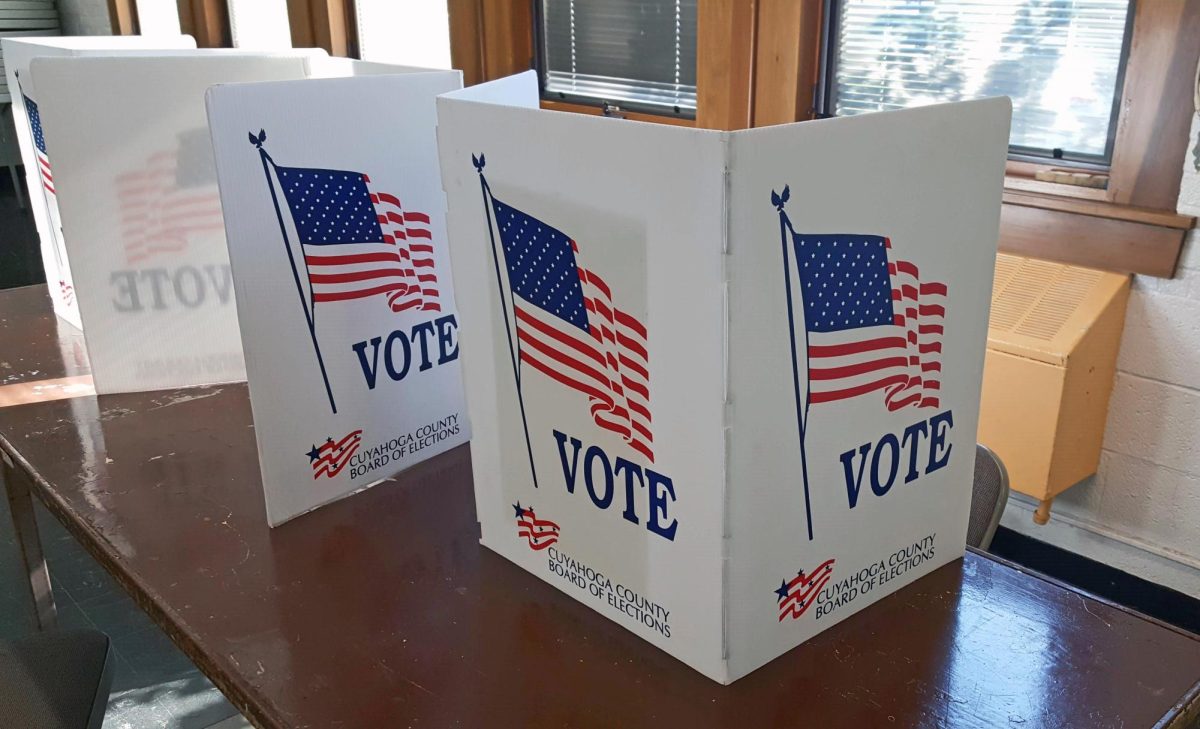Every four years, the United States holds its Presidential election. Lots of questions arise during major voting years, and while we can’t answer them all, we can certainly explain how they work and other key information about the upcoming elections.
Primaries and Caucus
So, what exactly is a primary or that other weird word? Well, for those of you not in a government class yet, or those of you who need a refresher, a primary election is nominated. They don’t win the election; they are simply the candidate for the real election. There are two primaries; an open primary and a closed primary. Pennsylvania is a closed primary, meaning that a person can only vote for a candidate in their party. A democrat gets a democratic ballot and a republican gets a republican ballot. Those who are unregistered don’t get a ballot. An open primary allows anyone to vote for anyone, no matter the party.
A caucus, which is pronounced how you think, is a little older. Essentially, people in the same party gather in a building and stand in a corner holding up the sign for the candidate they wish to vote for, and everyone gathers around them. Then, they stand still as people count bodies and they go to the vote. The caucus can take hours and can be called for a recount at any time in which those people have to stand there in their candidate’s corner for however long it may take.
Dates and States
Ok, so why does it all matter? Well, the two-party system almost guarantees an “epic showdown” between a Republican nominee and a Democratic nominee. That’s what happens in the fall.
So, who won the primary and caucuses?
Well, there isn’t a simple answer. Unlike the nation’s one-day Presidential voting day, states can hold primaries whenever they’d like within reason. And, each party can hold it on a different day. Some states have both primaries and caucuses.
This is an overall chart of the days in which each state/territory holds its primaries according to Politico.
January:
- Iowa (Rep Caucus)
- New Hampshire (Both Primaries)
February:
- South Carolina (Dem Primary)
- Nevada (Dem Primary)
- Nevada (Rep Caucus) & U. S. Virgin Islands (Rep Caucus)
- South Carolina (Rep Primary)
- Michigan (Both Primary)
March:
- Idaho (Rep Caucus) & Missouri (Rep Caucus)
- Washington D.C. (Rep Primary)
- North Dakota (Rep Caucus)
- Super Tuesday:
- Alabama (Both primary)
- Alaska (Rep primary)
- American Samoa (Both primary)
- Arkansas (Both primary)
- California (Both primary)
- Colorado (Both primary)
- Iowa (Dem caucus)
- Maine (Both primary)
- Massachusetts (Both primary)
- Minnesota (Both primary)
- North Carolina (Both primary)
- Oklahoma (Both primary)
- Tennessee (Both primary)
- Texas (Both primary)
- Utah (Dem primary)
- Vermont (Both primary)
- Virginia (Both primary)
- Utah (Rep caucus)
- Hawaii (Dem caucus)
- Georgia (Both primary)
- Hawaii (Rep primary)
- Mississippi (Both primary)
- Northern Mariana Islands (Dem primary)
- Washington (Both primary)
- Puerto Rico (Dem primary)
- Arizona (Both primary)
- Florida (Both primary)
- Illinois (Both primary)
- Kansas (Both primary)
- Ohio (Both primary)
- Louisiana (Both primary) & Missouri (Dem primary)
- North Dakota (Dem primary)
However, there are still some to occur all the way until September. Pennsylvania is having its closed primary on April 23, so don’t forget to vote if you are able.
The Parties Nominees
Ok, so we know when they happen and why they happen, but what is happening? Well, for anyone following the news, you pretty much know who the nominees for the parties are; Current President Joe Biden for the Democratic party and Former President Trump for the Republican party.
Currently, President Biden has won 2,597 delegates (as of April 2) and is the current nominee for the Democratic Party. As is usual with current running offices, Biden was pretty much unopposed in his run, with the person in second place literally being ‘nobody’. It’s safe to assume who the democratic nominee will be.
However, the republican nominee was in the air for a little while. As of March 13, Former President Donald Trump has become the republican party nominee with 1,686 delegates (As of April 2). At the end of 2023 and the beginning of 2024, Nikki Haley, Former Governor of South Carolina, was a strong candidate and had the second-highest number of delegates, 94, before she dropped out of the race on March 6.
There are several concerns with President Trump’s trial set for April. Several states have tried to ban him from the ballot after his involvement in the January 6th insurrections, but they have been repealed after the US Supreme Court ruled that they cannot take him off the ballot.
Your Election Day
Even though the Presidential party nominees have been selected, don’t forget to vote! There are still important things to be involved in, such as state and local elections. These are the ones that affect you directly. They can have a large impact on your everyday life. Pennsylvania is having its closed primary on April 23. Here is the link for all information about this year’s elections for Pennsylvania. Register to vote, if you are able to do so, and make your voice heard.














